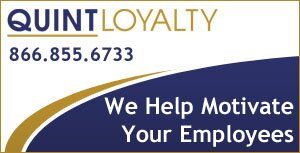Engagement Industry Briefs
No Confidence
According to Mercer’s 2013 Global Performance Management Survey, just 3% of organizations worldwide report their overall performance management system provides exceptional value. Roughly one in three organizations say improving managers’ ability to have candid dialogue with employees has the greatest impact on overall company performance. Mercer’s analysis revealed that the two components of manager skills that matter the most are linking performance to career development and setting SMART goals (specific, measurable, ambitious but achievable, relevant, and time-bound).
Bring the Passion
To address perpetually mounting competitive pressures, organizations need workers who bring passion to their jobs to navigate challenges and accelerate performance improvement. Yet only 11% of U.S. workers recently surveyed by Deloitte possess the necessary attributes that lead to accelerated learning and performance improvement. These and other insights are highlighted in a new report from Deloitte’s Center for the Edge entitled Unlocking Passion of the Explorer. Recruiting wars have typically focused on finding particular skills, but Deloitte uncovered that the typical modern work skill becomes outdated within five years.
Healthier Workers
According to the 2013/2014 Staying@Work Survey, conducted by Towers Watson and the National Business Group on Health, employees reported three lifestyle risks as the biggest workforce issues: stress, obesity and lack of physical activity. These risk factors result in increased employee illness, higher medical costs and lost productivity due to unplanned absence and decreased efficiency at work. To combat these issues, companies have to overcome poor employee engagement. Nearly eight in 10 (77%) employers view a lack of employee engagement as the biggest obstacle to changing behavior.
Brand Interaction
The Brand Activation Association (BAA) and Booz & Company have unveiled the results of a comprehensive research study that goes well beyond shopper marketing to explore how today’s consumers have dramatically changed the way they interact with brands. Some of the key findings of the study include responses to the question about how marketers plan to change their MarCom mix over the next two years. 68% rate investing in branded content and shopper experiences to engage shoppers before they go to the store as high priorities over the past two years.
Engagement University
On the heels of its highly successful 2013 event in New Orleans, the Enterprise Engagement Alliance has announced the launch of Engagement University, the first formal curriculum and certification program on Engagement throughout the organization. It will be held in conjunction with the 2014 Rewards & Recognition Expo and Engagement Pavilion, April 6-8, 2014 at the Gaylord Opryland Resort & Convention Center in Nashville, TN. Led by a faculty of corporate practitioners, solution providers, research experts and professors, the program brings to life a formal Enterprise Engagement curriculum and certification program. For more info, go to the EEA website.
Young And Old
According to the latest Engagement Study from Randstad, the age groups that share the most workplace sentiments in common are, surprisingly, the youngest and oldest generations. When asked about their feelings toward their current job, millennials and mature workers responded more favorably than other groups across the board. In fact, 89% of mature workers and 75% of millennials say they enjoy going to work every day, and a majority of both groups feels inspired to do their best at work (95% of mature respondents and 80% of millennials). These workers also perceive a higher morale in the workplace than other age groups, with 69% of millennials and 64% of mature workers finding a positive energy at work, compared to a 53% percent average among other generational groups.
Top Leadership Traits
Hay Group recently released its eighth annual Best Companies for Leadership study and Top 20 list. According to researchers, the Best Companies for Leadership are purposeful and strategic in developing, enabling and motivating leaders throughout the organization to do their best. In fact, 73% of the Top 20 companies reported giving everyone at every level of the organization the opportunity to develop and practice the capabilities needed to lead others, compared to only 47% of all other companies.
Incentives Reflect Culture
If you’re looking for a glimpse into the true nature of an organization’s values, start by looking at its incentive travel program. A recent study by the Incentive Research Foundation (IRF) entitled Striking the Balance: The Integration of Offsite Business Meetings and Incentive Group Travel found that the design and experience of a group incentive travel program offers a microcosm of the culture of its sponsoring organization. This, along with other key findings, are critical to program planners, hotels, destination management companies (DMCs), and other players in the corporate meetings and incentive travel markets.
Books
From Culture Eats Strategy for Lunch: “Culture is not the enemy of strategy and performance, but an equal player in the game, not to be underestimated or overlooked. For each organization, there exists a crucial connection point where the business promise hinges on the culture. Our competition can copy our products, methods and service, they can hire our stars, duplicate our marketing, use our vendors and lure our customers with amazing offers, but they can't clone the culture that created these advantages. It is the emotional nature of culture that renders it capable of becoming your worst nightmare or your most sustainable competitive advantage. This book is about the precarious balance between two forces – rational and emotional – that intertwine to create culture at every level of the organization. Our touchpoints, strategies and tactics can either take a bite out of our culture or ignite the passion within it. As leaders, managers and employees, we must choose to be active owners of the cultures to which we belong to draw out the best of the cultures’ qualities and align them to our business imperatives. Our individual and collective futures depend on this challenge, making the cultures in which we work and live a personal issue for all of us. To experience passion at work, to see our businesses flourish, we must begin with our individual connections, what we call “MicroCulture.”
Change ≠ Continuity
With many companies experiencing organizational leadership and structural changes every 12 to 18 months, it is essential for companies to develop an overall meetings and incentive strategy that can be executed by anyone, anywhere. A Maritz Travel study says that companies implementing an overall strategy can benefit from consistent program messaging to internal and external audiences, stronger negotiation power with suppliers and achievement of organizational goals and objectives. In addition, as global companies execute numerous meetings across the globe, an overall strategy ensures corporate messaging is consistently communicated with a regional flare.
Worldwide Engagement
According to Gallup’s 142-country study on the State of the Global Workplace, engagement varies considerably according to the region and country in which workers live and their economic and social conditions. The U.S. and Canada lead the world with 29% of employees engaged at work, followed by workers in Australia and New Zealand, at 24%. The proportion of engaged employees in Western Europe is 14%, about half that in Northern America, implying that workplace lethargy could impede economic dynamism in many European countries. Employee engagement hinges on people’s capacity to seek and find jobs that allow them to do what they do best and on managers giving employees the latitude they need to use their strengths in their daily work lives.
Education
Over two-dozen business executives from the Madison, WI area attended the Enterprise Engagement Alliance regional conference on Nov. 20, headlined by Curt Coffman, Principal of The Coffman Organization, co-author of one of the all-time business best-sellers, First, Break All the Rules, and the recently-released Culture Eats Strategy for Lunch. The purpose of the event, sponsored by FIRELight Group, an Engagement Agency company, was to introduce the emerging field of Enterprise Engagement to the regional business community. Attendees included managers from banks, local government, associations, manufacturers and distributors. Following Coffman’s presentation, Bruce Bolger, Managing Director of the Enterprise Engagement Alliance, provided an abbreviated version of the Enterprise Engagement curriculum, which provides a formal framework for addressing concrete marketing, sales, distribution, operations, employee and community goals and challenges. “As a long-time provider of incentive programs for organizations throughout the country, we’ve seen the need to broaden our approach to address all of the factors that can affect engagement,” notes Sandra Daniel, President of FIRELight Group. “We’ve become affiliated with the Enterprise Engagement Alliance and the Engagement Agency group of companies in order to provide our clients with a full breadth of services related to helping them achieve concrete goals through people.”
Subscription Center
Subscribe to Engagement Strategies Magazine
Update Your Subscriptions








Comments
Show: Newest | Oldest
Post a Comment